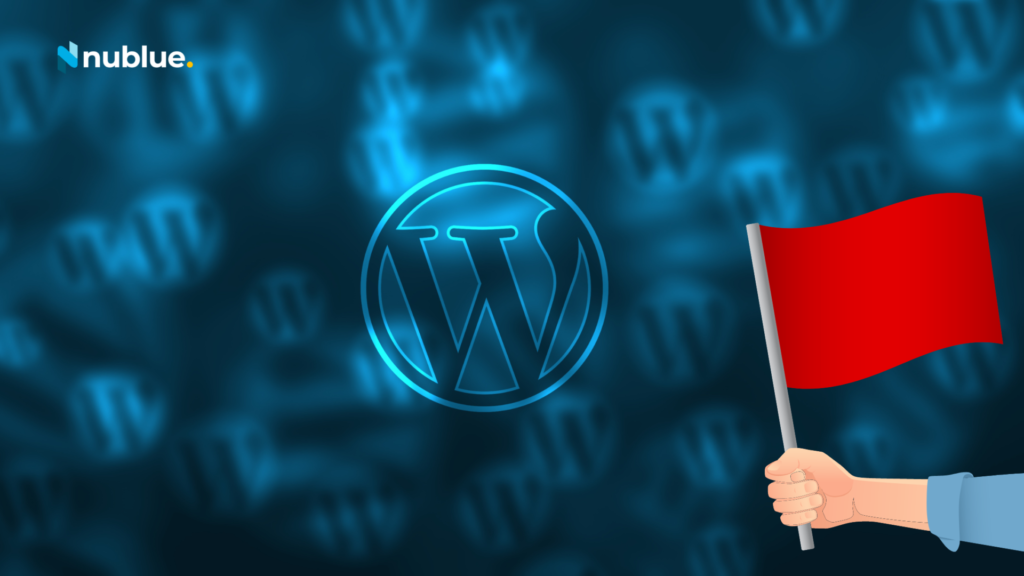In an age where online security is paramount, safeguarding your website is a top priority.
As a website owner, you must protect your site from potential threats and vulnerabilities.
One of the most common ways hackers gain access to a website is through poorly maintained or malicious plugins.
WordPress, being one of the most popular content management systems, has a vast repository of plugins that can help boost the functionality of your website. However, not all plugins are created equal, and some may contain malicious code that can compromise your site’s security.
This guide will walk you through ways to identify safe WordPress plugins that keep your website secure and performing well.
So, let’s dive in and learn how to safeguard your website with safe WordPress plugins.

Introduction to WordPress Plugins
WordPress plugins extend the functionality of your website.
Plugins are created by developers and can be downloaded and installed on your website. Developers from all over the world contribute to WordPress, mostly by creating plugins. With over 50,000 plugins available in the WordPress repository, you can easily find a plugin for almost any function you need on your website.
However, not all plugins are created equal. Some plugins can slow down your website, while others can even compromise your website’s security. Developers of all skills and experiences can create plugins and, without the right knowledge behind them, can inadvertently create poor plugins.
While we’d like to give everyone the benefit of the doubt, a small minority of creators are intentionally creating malicious plugins too. With that in mind, choosing safe and effective plugins is essential to ensure your website runs smoothly and remains secure.
Importance of Choosing Safe and Effective Plugins
While plugins can be beneficial to your website, choosing safe and effective plugins is crucial for maintaining your website’s security and performance.
Using unreliable plugins can lead to several issues for your website. For instance, a poorly coded plugin can cause your website to crash, leading to a loss of traffic and revenue.
Additionally, plugins with security vulnerabilities can be exploited by hackers, leading to data breaches and other cybersecurity threats. Hackers can use this access to steal sensitive information, inject malware, or even take control of your website. It’s essential, therefore, to choose reputable plugins that are regularly updated to address any security concerns and mitigate these risks.

The Impact of Plugins on Website Performance
The performance of your website is crucial to its success. Slow loading times and other performance issues can cause visitors to leave your website, leading to a loss of traffic and revenue.
Plugins can have a significant part to play in performance, with some poorly coded plugins slowing down your website. Here are a few ways plugins can affect website performance:
- Increased Page Load Times – Each plugin adds extra code to your website, which can increase the size of your pages and slow down the loading times. This can negatively impact user experience and SEO.
- Server Resource Usage – Some plugins may require more server resources to run, which can slow down your website or cause it to crash. This can be a problem, especially for websites with high traffic.
- Plugin Conflicts – In some cases, two or more plugins may conflict with each other, causing your website to crash or perform poorly. This can be challenging to troubleshoot and fix.
The Role of Plugin Updates in Website Security
Using outdated plugins can expose your website to security threats, making it essential to update them regularly.
Plugin updates often include security patches that address known vulnerabilities. If plugins aren’t updated, your website can be at risk of cyber attacks. Hackers can exploit these vulnerabilities to access your website, steal sensitive data, or inject malicious code.
Updates can also improve plugin compatibility with your website’s theme and other plugins. This can prevent conflicts that can cause errors or even crashes, which can negatively affect user experience and SEO.
Your website can be kept up-to-date with the latest web standards and technologies from plugin updates. This can improve website performance, speed, and user experience.
Updates may also include new features or functionality that can improve your website’s functionality, user experience, or SEO.
To ensure website security, it’s essential to update your plugins regularly. You should also ensure that you only use plugins from reputable developers who update their plugins regularly and frequently monitor your website’s security for any signs of malicious activity. Additionally, it’s recommended to back up your website regularly to minimise the impact of any security breaches.

Evaluating Plugin Reviews and Ratings
Plugin reviews and ratings are an excellent way to determine the effectiveness of a plugin.
Here are some steps you can take to evaluate WordPress plugins:
Plugin Reviews: You can find reviews and ratings on the WordPress plugin repository or other third-party websites. it’s essential to read both positive and negative reviews to get a complete picture of the plugin’s performance and security.
Identify plugin statistics: Check the plugin’s rating, number of downloads, and user feedback on the WordPress Plugin Directory or other trusted sources. A high rating, a large volume of downloads, and positive feedback indicate a safer plugin that should perform well on your website.
Review the Plugin Update Frequency: Check the frequency of plugin updates. Regular updates are a good sign that the developer is actively maintaining the plugin and addressing any issues or vulnerabilities.
Examine the Developer’s Reputation: Check the developer’s reputation and experience. Look for information about the developer’s security, reliability, and support track record. Check the developer’s website, social media profiles, or other online forums for information about the developer’s experience and reputation.
Test the Plugin on a Staging Site: Before installing a new plugin on your live website, test it on a staging site to check for any compatibility issues or conflicts with other plugins.
While we appreciate that not everyone has access to this, it’s worth asking your technical team or agency to do it on your behalf.
Check the Plugin Code Quality: Check the code quality of the plugin to ensure it’s well-written, optimised, and follows WordPress coding standards. Poorly coded plugins can negatively affect website performance and security. Again, this is probably a task for a technical team.
Evaluate the Plugin’s Features: Evaluate the plugin’s features to ensure they align with your website’s needs. Too many plugins or unnecessary features can slow down your website and negatively impact user experience.
By taking these steps to evaluate WordPress plugins, you can choose secure and performant plugins for your website. If ever in doubt, your technical team or agency will be able to support you.
Checking Plugin Compatibility with Your WordPress Version
WordPress is continuously updated to improve its performance and security. Some plugins may not be compatible with the latest version of WordPress, leading to issues.
Checking plugin compatibility with your WordPress version is essential for several reasons.
New versions of WordPress often introduce changes to the core code, which can affect how plugins work. If a plugin is not compatible with the latest version of WordPress, it can cause conflicts or even crashes, which can negatively affect your website’s performance and user experience.
Using outdated plugins on your website can make it vulnerable to cyber-attacks. Plugin developers regularly update their plugins to ensure they are secure and compatible with the latest version of WordPress. Using an outdated plugin can make it more vulnerable to security breaches.
Plugins that are not optimised for the latest version of WordPress can slow down your website, which can affect SEO and user experience.
Incompatible plugins can also destabilise your website, leading to unexpected behaviour or even crashes. This can negatively affect your website’s reputation and user experience.
By checking plugin compatibility with your WordPress version, you can ensure that the plugins you use are up-to-date, secure, and optimised for performance. This can help you maintain a stable, secure, fast website with a positive user experience.
Safe and effective WordPress plugins are key to success
Plugins are a great way to extend the functionality of a WordPress website, but choosing safe and effective WordPress plugins is crucial to the success of your website. By following the tips outlined in this blog, you can ensure that the plugins you choose are optimised for performance, security, and compatibility.
Remember always to research the plugin developer’s reputation, read reviews and ratings, and opt for a well-used plugin to ensure that the one you choose is safe and effective.
Looking to keep your WordPress site secure and performing well? Read our blog, 7 Ways to Keep Your WordPress Site Performing

